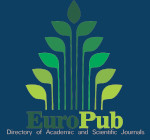Jogos digitais: uma proposta para o ensino da matemática
DOI:
https://doi.org/10.17648/diversitas-journal-v6i1-1598Abstract
ABSTRACT: Mathematics is one of the disciplines that students present with greater difficulty. For this reason, the teacher needs to seek new methodological resources in order to encourage students to learn mathematics and make it easier to learn. Digital Games is one of the alternatives for this to be achieved. Therefore the present article aims to present and discuss some proposals of Digital Games that can be used in mathematics classes, in order to make classes more dynamic and attractive, thus collaborating in the teaching-learning process of mathematics. In addition, this article seeks to explore how Digital Games can help in the teaching-learning process of mathematics, what contributions they can bring, and in what ways it can be explored for mathematics teaching-learning to occur.
KEYWORDS: Mathematics Education. Technologies in Education. Games Learning.
Metrics
References
ALEXANDRE, Carla; SABBATINI, Marcelo. A contribuição dos Jogos Digitais nos processos de aprendizagem. In: Simpósio de hipertextos e tecnologias na educação, 5. 1º Colóquio Internacional de educação com Tecnologias. Aprendizagem Móvel dentro e fora da escola. Centro de convenções, UFPE/Recife, 13 a 15 –novembro/2013.
BRASIL. Secretaria de Educação Fundamental. Parâmetros Curriculares Nacionais:Matemática. Brasília: MEC, 1998. 148 p.
BRASIL. Ministério da Educação. Secretaria da Educação Média e Tecnológica. Parâmetros Curriculares Nacionais: Ensino Médio-ciências da Natureza, matemática e suas tecnologias. Brasília: MEC; SEMTEC, 2002.
BREZOLIN, Ana Paula; DALLA NORA, Marcia. Jogos Matemáticos: Uma alternativa para o Ensino da Matemática (relato de experiência).IV Jornada Nacional de Educação Matemática e XVII Jornada Regional de Educação Matemática, 2012, UPF –Universidade de Passo Fundo. Passo Fundo –RS.
DIA A DIA EDUCAÇÃO, 2020. Disponível em: <http://www.matematica.seed.pr.gov.br/modules/conteudo/conteudo.php?conteudo=48>, Acessado em: 01 mar. 2020.
DICIONÁRIO DO AURÉLIO, 2020. Disponível em: <https://dicionariodoaurelio.com/jogo>, Acessado em: 25 nov. 2019.
ESCOLA GAMES, 2020. Disponível em: <http://www.escolagames.com.br>, Acessado em: 01 mar. 2020.
GRANDO, Regina Célia. O conhecimento matemático e o uso de jogos na sala de aula.239 f. Tese (Doutorado em Educação) –Universidade Estadual de Campinas, Campinas-SP, 2000.
GRANDO, Regina Célia. O jogo e a matemática no contexto da sala de aula. São Paulo: Paulus, 2004.
HENZ, Carla Cristina. O uso das Tecnologias no Ensino-Aprendizagem da Matemática. 2008. 29 f. TCC (Graduação Ciências Exatas e da Terra), Universidade Regional Integrada do Alto Uruguai e das Missões -URI -Campus de Erechim, Erechim, 2008.
MELO, Diógenes Maclyne Bezerra de; SILVA, Kátia Cilene da Silva. Jogos Digitais e Objetos de Aprendizagem no Ensino da Matemática. III EREM –Encontro regional de Educação matemática: Diálogo de Educação Matemática e outros saberes. Universidade do Estado do Rio Grande do Norte (UERN). Mossoró -Rio Grande do Norte. 1 a 3 de out. 2011.
PARANÁ, Secretaria de Estado da Educação (SEED). Diretrizes Curriculares Estaduais da Educação Básica para o Ensino de Matemática. Secretaria da Educação, Paraná. 2008.
PORTAL DO MEC. Avaliação Internacional. 2016.Disponível em: <http://portal.mec.gov.br/component/content/article?id=42741>, Acessado em: 17 de out. 2019.
RACHA CUCA, 2020. Disponível em: <https://rachacuca.com.br/jogos>, Acessado em: 01 mar. 2020.
RIBEIRO, Marjorie. Conheça dez jogos educativos online. 2013. Disponível em: <http://portal.aprendiz.uol.com.br/2013/02/06/conheca-dez-jogos-educativos-online-gratuitos/> Acessado em: 15 fev. 2020.
ROSSETTO, Hallynnee Héllenn Pires. Um Resgate Histórico: A Importância da História da Matemática. 2013. 38 f. Monografia (Especialização em Educação: Métodos e Técnicas de Ensino). Universidade Tecnológica Federal do Paraná. Medianeira –PR, 2013.
SILVA, José Augusto Florentino da. Refletindo sobre as Dificuldades de Aprendizagem na Matemática: Algumas Considerações. Universidade Católica de Brasília –UCB, Brasília, 2005.
Downloads
Published
How to Cite
Issue
Section
License
Copyright (c) 2021 Janaina Fernanda Marcolin, Francisco Pereira Junior, André Sandmann, Leandro Lima Aquino

This work is licensed under a Creative Commons Attribution 4.0 International License.
The Diversitas Journal expresses that the articles are the sole responsibility of the Authors, who are familiar with Brazilian and international legislation.
Articles are peer-reviewed and care should be taken to warn of the possible incidence of plagiarism. However, plagiarism is an indisputable action by the authors.
The violation of copyright is a crime, provided for in article 184 of the Brazilian Penal Code: “Art. 184 Violating copyright and related rights: Penalty - detention, from 3 (three) months to 1 (one) year, or fine. § 1 If the violation consists of total or partial reproduction, for the purpose of direct or indirect profit, by any means or process, of intellectual work, interpretation, performance or phonogram, without the express authorization of the author, the performer, the producer , as the case may be, or whoever represents them: Penalty - imprisonment, from 2 (two) to 4 (four) years, and a fine. ”















.png)




